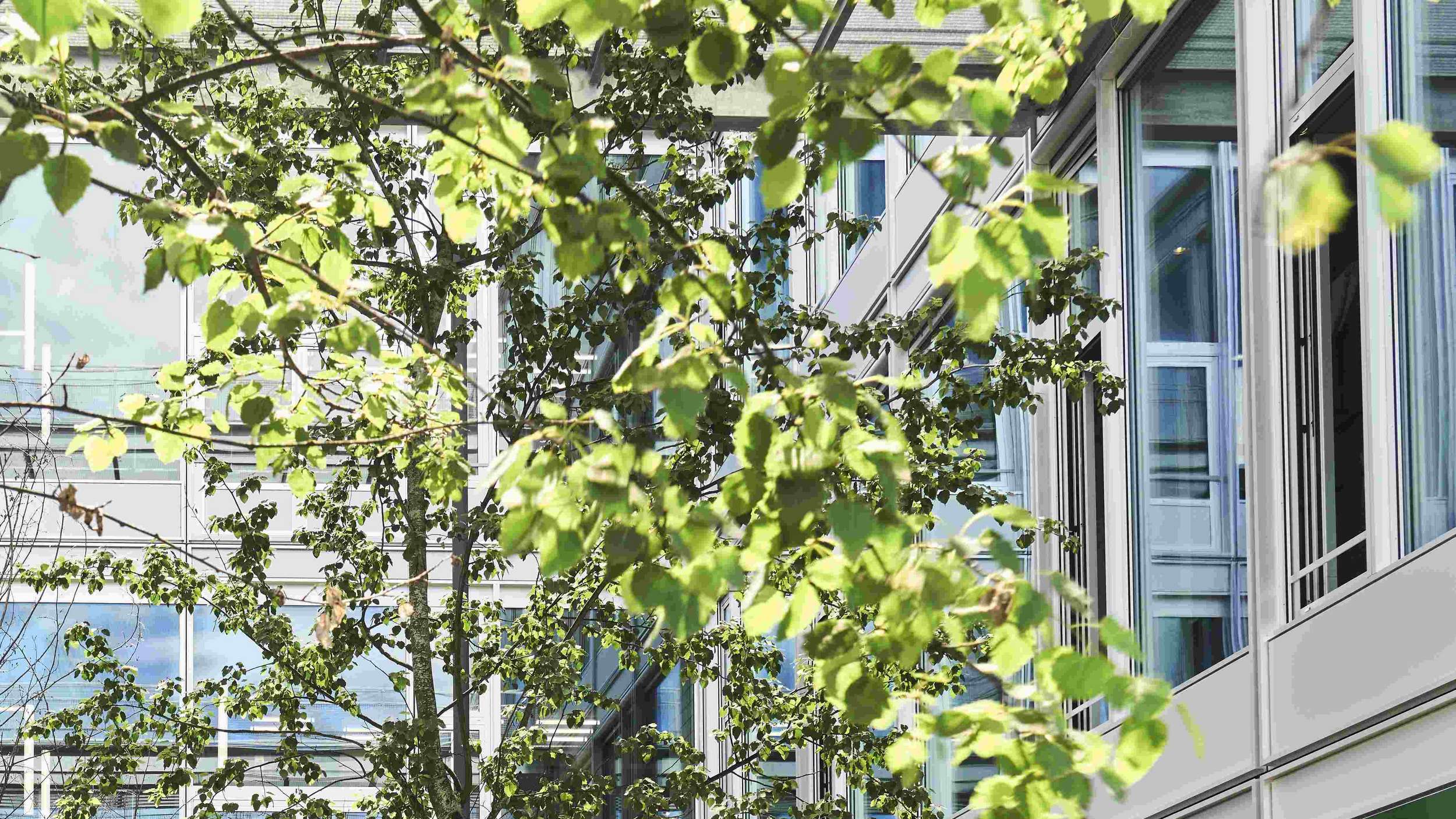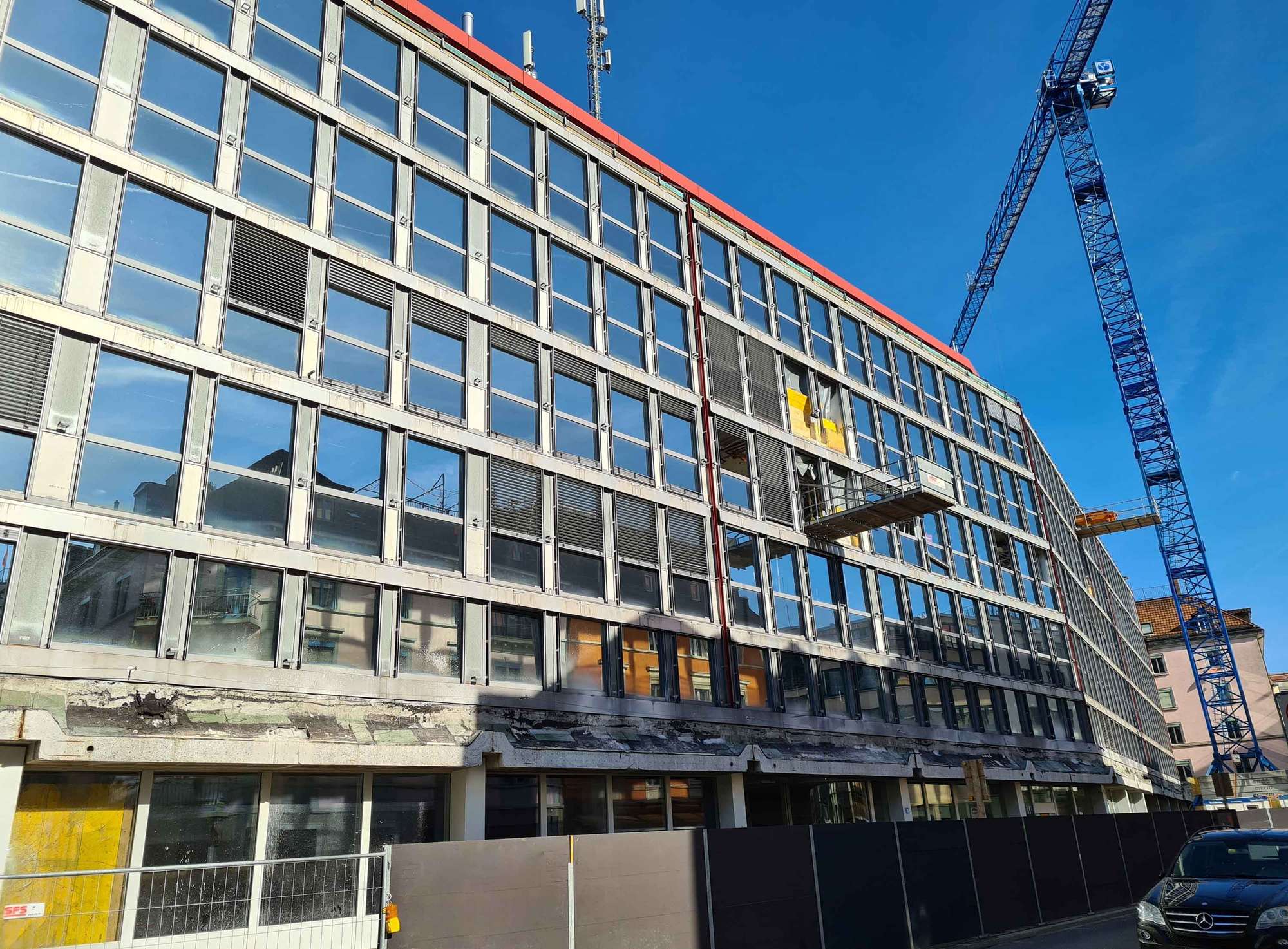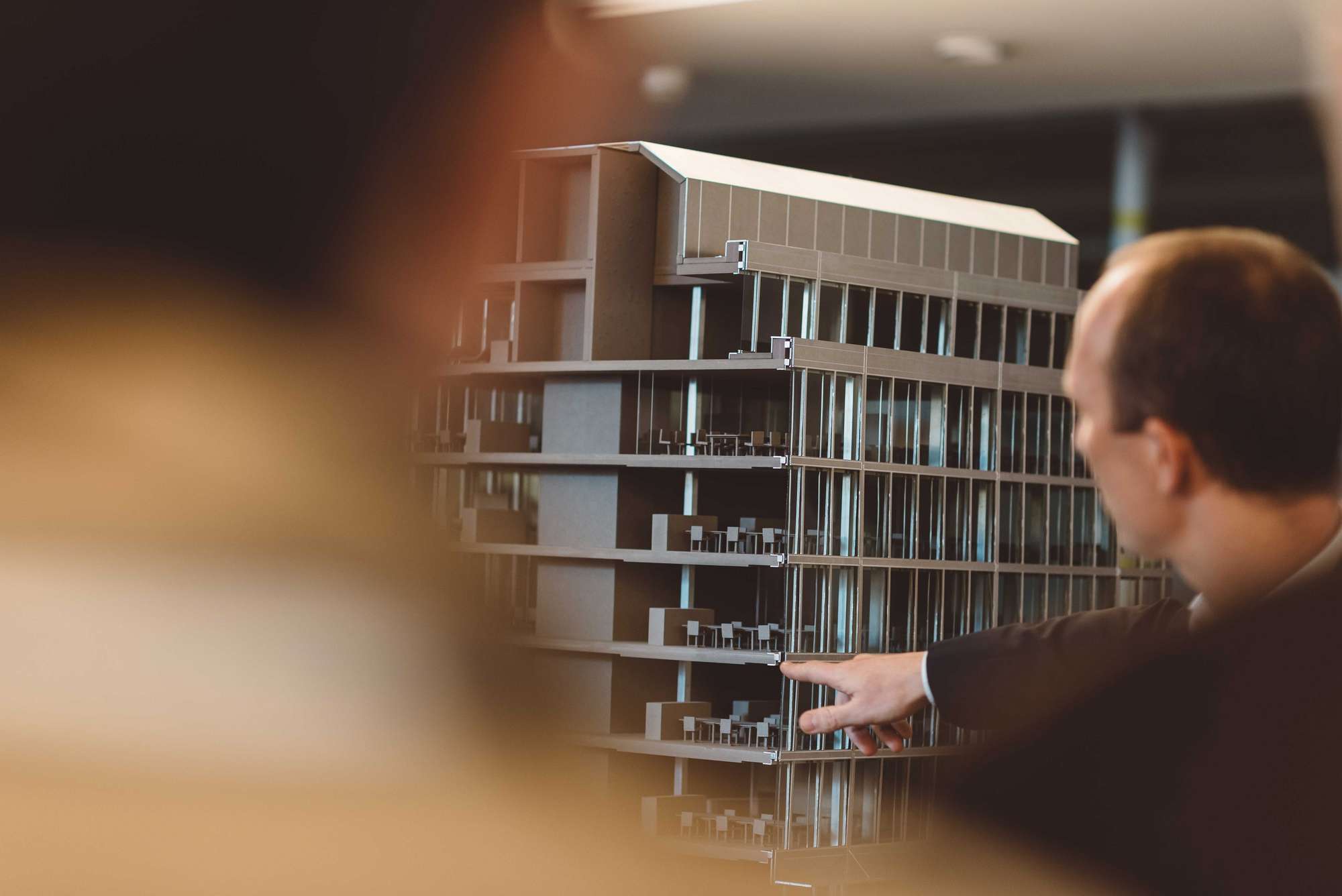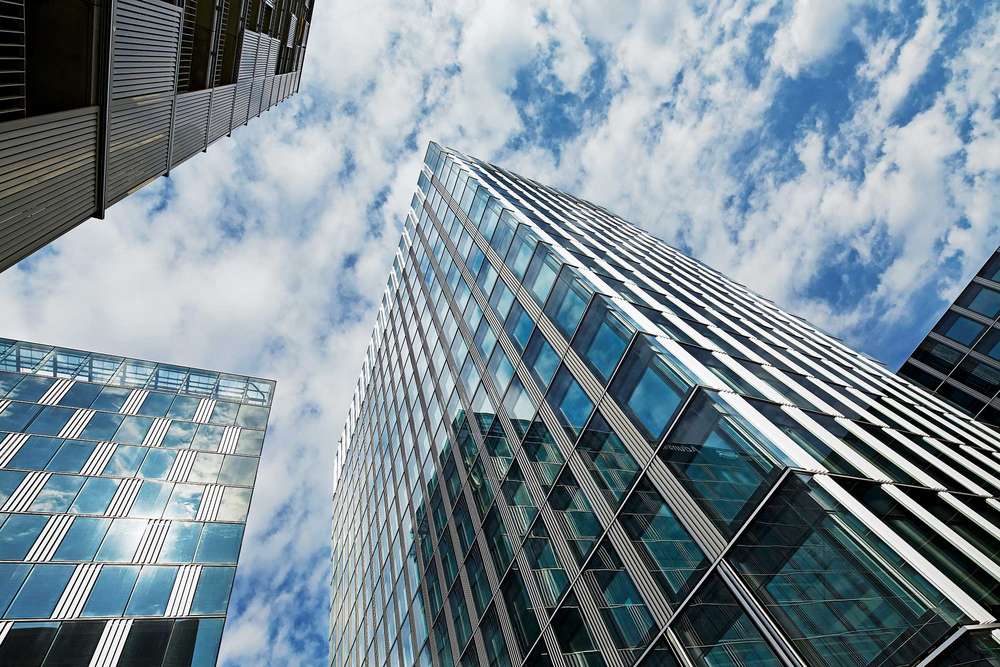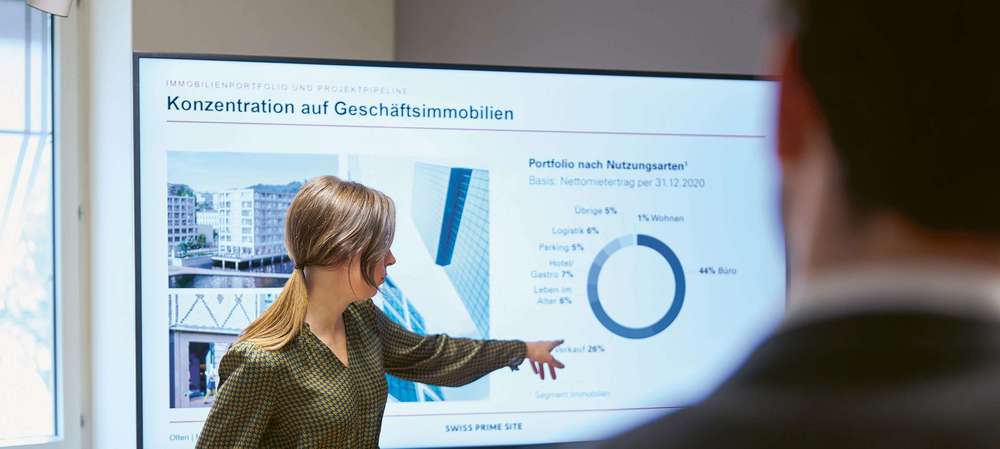Story Detail
A new era of opportunity for sustainability
A new era of sustainability
The extent to which an extraordinary event or crisis ushers in a new era should be left for historians to decide. It is likely that they will identify historic «turning points» in an ever-shorter succession. That’s because the effects of individual events take on greater global and societal significance in a globalised world. It may prove particularly difficult to pin down the exact «turning point» for bringing about a new era of sustainability. The very first environmental policy measures date back to the 1970s. The decision by individual countries to abandon nuclear energy could also be regarded as a crucial turning point, provided they do not scrap this priority because of other events. The fact is that sustainability has lost political relevance in the face of the coronavirus pandemic, the Ukraine crisis and their cumulative effects on the availability of resources, but it has regained significance as a broader issue. The unexpected shortage of fossil fuels and other important commodities has served to promote new and alternative structures for obtaining and distributing such resources. A comprehensive reconsideration is underway on a global level. The most recent crises have thus contributed to ushering in a new era of sustainability.
Buildings require a great deal of capital and resources. They are responsible for a large portion of CO2 emissions and waste production.
Social and economic transformation
The fact that we are facing a growing number of complex and multi-faceted challenges is undisputed. In addition to the immediately apparent effects of ongoing inflation and price increases, as well as supply and material bottlenecks and a growing number of sustainability-related regulatory framework conditions, societal developments that are indirectly related to these events also play a central role. Customer requirements and employee expectations towards companies are changing. The pandemic has accelerated the transition to new models of work, which have led employees to demand more flexibility and a modern infrastructure. The conflict in Ukraine and its effects have revealed supply chain dependencies and caused energy prices to spike. This has promoted sustainability efforts to expand decentralised renewable energy production and to use regional products and services. But it has also brought about changes that contradict universal sustainability goals, such as resorting to the use of coal-based energy and the decision by the EU to classify gas and nuclear energy as environmentally sound.
These developments have thrown existing practices and business models into question and are having a significant impact on the real estate industry. Buildings require a great deal of capital and resources. They are responsible for a large portion of CO2 emissions and waste production. Furthermore, they affect society as a whole because they serve as living, housing and work spaces. Property owners such as Swiss Prime Site and its tenants are directly affected by the aforementioned price trends for energy and materials.
Finite resources in linear systems cannot be scaled indefinitely
We owe our prosperity and post-industrial growth to the use of fossil fuels and finite resources in a linear economic system. In the face of increasing consumption and population growth, this means that resources will become increasingly scarce and environmental problems will get much worse. The prevailing economic system does not consistently take external effects and the resulting environmental costs into account, nor has it been designed with sustainable growth and scalability in mind. It will undoubtedly reach its limits, slowly but surely. While we cannot change the past, we must take advantage of this turning point to transform our economic system in view of the obvious limits and resulting consequences. Whether this occurs under the banner of climate and environmental protection, to secure long-term earnings or supplies, or simply out of conviction is of secondary importance.
Sustainability and the circular economy as value drivers
Sustainability is far from being just a «necessary exercise». For Swiss Prime Site, the largest listed real estate investor in Switzerland, as well as many other companies, sustainability has become a value and innovation driver. This also applies to the concept of the circular economy, which not only aims to minimise our environmental footprint but also make a positive contribution and create new business opportunities. It is a matter of transforming our business and value creation models by taking environmental, ecological and social aspects into account. The challenge of switching to a circular economy lies in its complexity. It is necessary to consider company-specific products and services. The entire business and value creation model is also brought into focus, making it necessary to have more intense discussions with stakeholders about the supply chain as a whole. We need a transformation led by the business community that can rely on internationally valid standards and a binding regulatory framework. Current developments have made it even more difficult to tread this path, but we cannot rule out that such developments may also make it possible to tread it more quickly.
Circular economy and the contribution of real estate
When considering the amount of waste produced, energy and resources consumed and the resulting emissions, it is obvious that companies in the real estate sector play a central role in society and must take responsibility for bringing about a transformation. When it comes to operational carbon emissions, many companies now provide the necessary level of transparency. Buildings are now powered to a greater degree with renewable energy and, where possible, designed to actively produce energy. As this development continues to advance, a greater focus is placed on investment properties and the embodied carbon of buildings. Swiss Prime Site’s «Müllerstrasse Zürich» project, which is the most well-thought-out project of its kind in Switzerland, is a good example of this.
Although the life cycle of real estate is often depicted as a circle, its related processes are aligned with the prevailing linear economic system. Standing in contrast to this is the holistically defined concept of the circular economy that can serve as a guiding paradigm for a long-overdue transformation. The basic idea is to transform today’s model of «take, make, use, waste» and incorporate the concept of the circular economy into processes on the design, product and material levels. For buildings, this means building only what is truly needed, building less and preserving existing structures, being smart and efficient, and using the appropriate materials and technologies.
Two aspects in particular must play a part in how we think, behave and make decisions when it comes to the circular economy. First, we must consistently take the whole real estate life cycle and necessary adaptability (e.g. flexibility of use and extending the use phase) into account. Second, we must factor the externalised effects and costs of today’s system into our decisions (environmental impact). The public debate and business activities related to climate protection and sustainability still fail to consistently factor external effects and their environmental costs into the overall costs. New is usually cheaper than recycled, and the courage to implement a CO2 price that is effective in reducing emissions is lacking.
What costs less in the short term may end up costing more over the long term because not investing in the sustainability performance of buildings carries substantial risks (marketability, regulatory developments, etc.). The effects of climate change and the consequences of exploiting and polluting our environment bear on processes that occur at a comparatively slow tempo.
They fail to effect a turning point for this reason. It is sudden, unexpected and painful events that force us into a new age of holistic sustainability. Perhaps historians will one day describe this era as post-industrial – that is, if knowledge and information are actually used by a society rooted in circular principles to avoid repeating the errors of the past.
The article was published as part of the NZZ publishing supplement «Sustainability». Authors: Urs Baumann, Chief Investment Officer and Martin Pfenninger, Head Group Sustainability at Swiss Prime Site.
